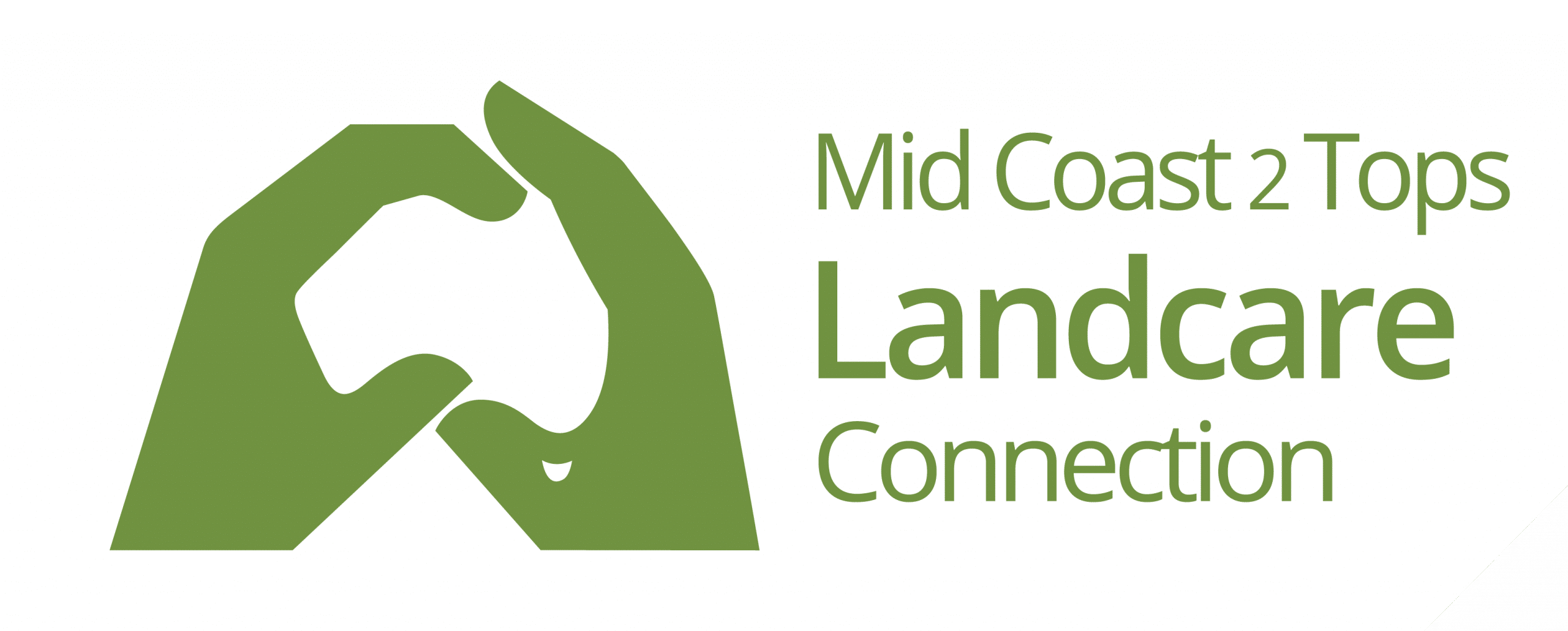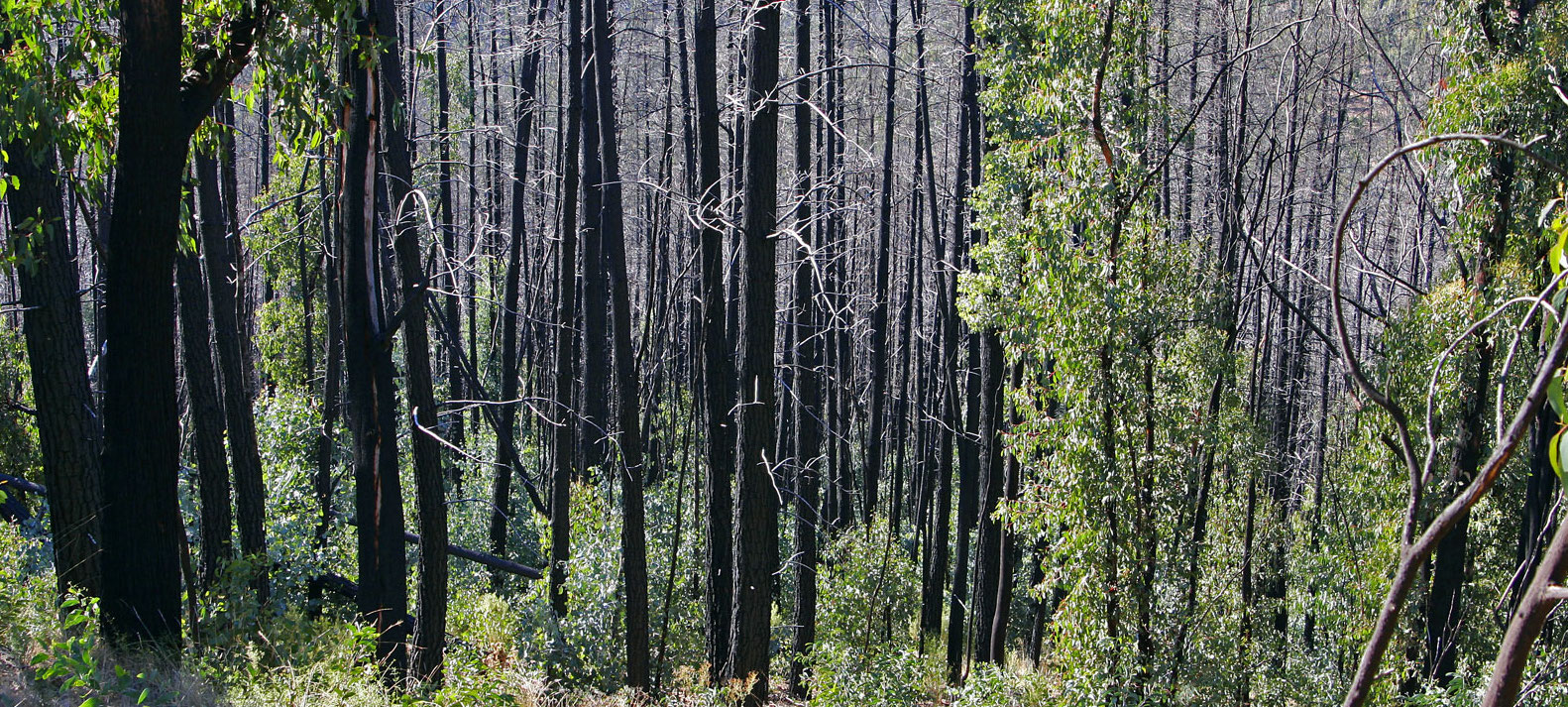
Eco Burn Education Project
Bushfires have been shaping the landscape for millions of years and are a common component of the Mid Coast region. Our natural and built environment has been threatened and impacted by bushfire in the past, and this will continue to happen especially while climate change puts even more pressure on the environment.
Because of this, Mid Coast 2 Tops has designed our Eco Burn Edu workshop series, aim at giving our community knowledge in bushfire ecology, risk management and property protection.
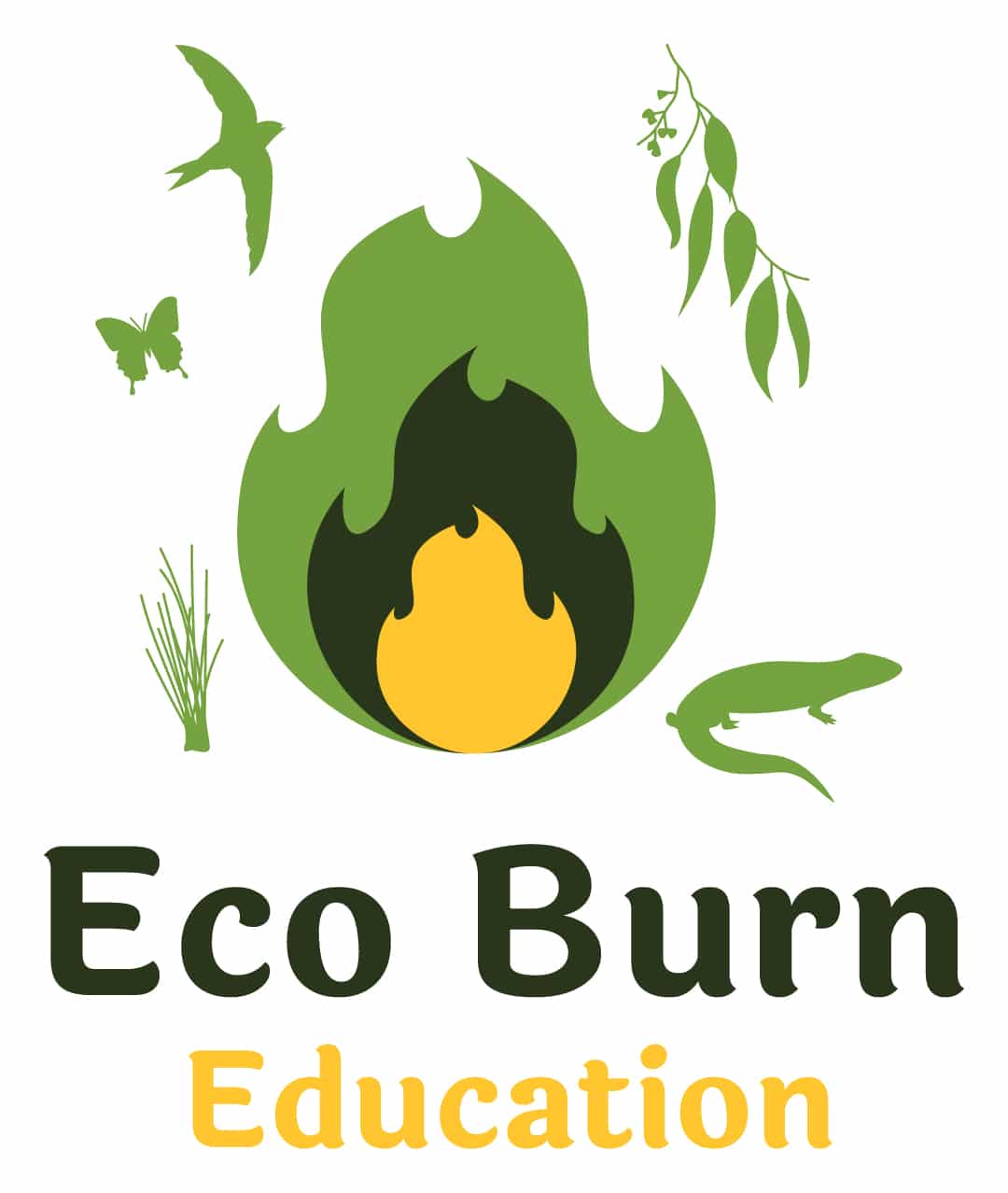
Online learning modules: an introduction into fire ecology and management
Online Course Now Available
We have converted our ever popular Eco Burn Edu workshop series into bite-sized modules in a FREE online course.
With access for all, these modules include Olivia presenting a range of topics like understanding fires, prescribed burns and fire management plans. Plus, there are links to resources and knowledge checks throughout.
Sign up today to take this self-led, in your own time workshop and get a step closer to having a prepared property.
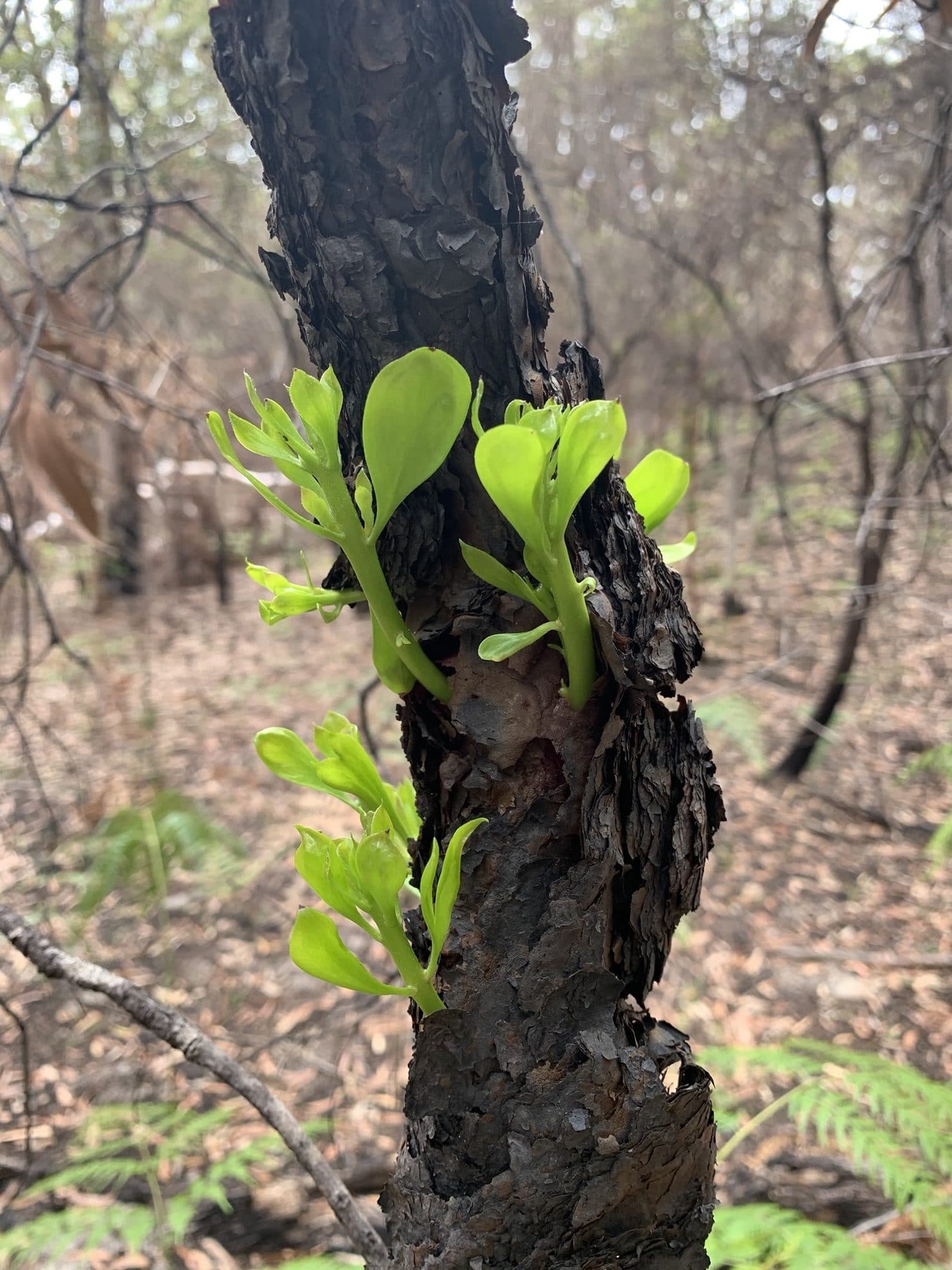
Epicormic growth after bushfire – Photo credit Isabelle Strachan
Fire can be used as an important management tool to protect and work with our landscape. The Eco Burn Education program aims to teach landholders about using fire to manage their property for biodiversity conservation and protect their assets. The basis of the program is around different types of native vegetation found in the region and what the appropriate fire regimes are for them.
Inappropriate fire regimes are one of the biggest threats to our native vegetation. This is why it’s important to practice sustainable fire management, which involves including a range of fire intervals to support all native vegetation.
This program is taught through workshops that will be held around the region. The workshops involve an introduction into fire ecology including fire regimes, creating a fire management plan and steps on how to implement this plan on your property. Resources available at the workshops and soon to be on our website include a workbook, property maps and other electronic factsheets, guides and case studies.
The Eco Burn Education team recognises and appreciates its funding contributor; Resilience NSW and the Bushfire Community Recovery and Resilience Funding Program and its partners; Rural Fire Service, Mid Coast Council, Hunter Local Land Services, Nature Conservation Council and HotSpots Fire Project.
Keep a look out in the Mid Coast Landcare Newsletter for information and sign-up links to the upcoming workshops!
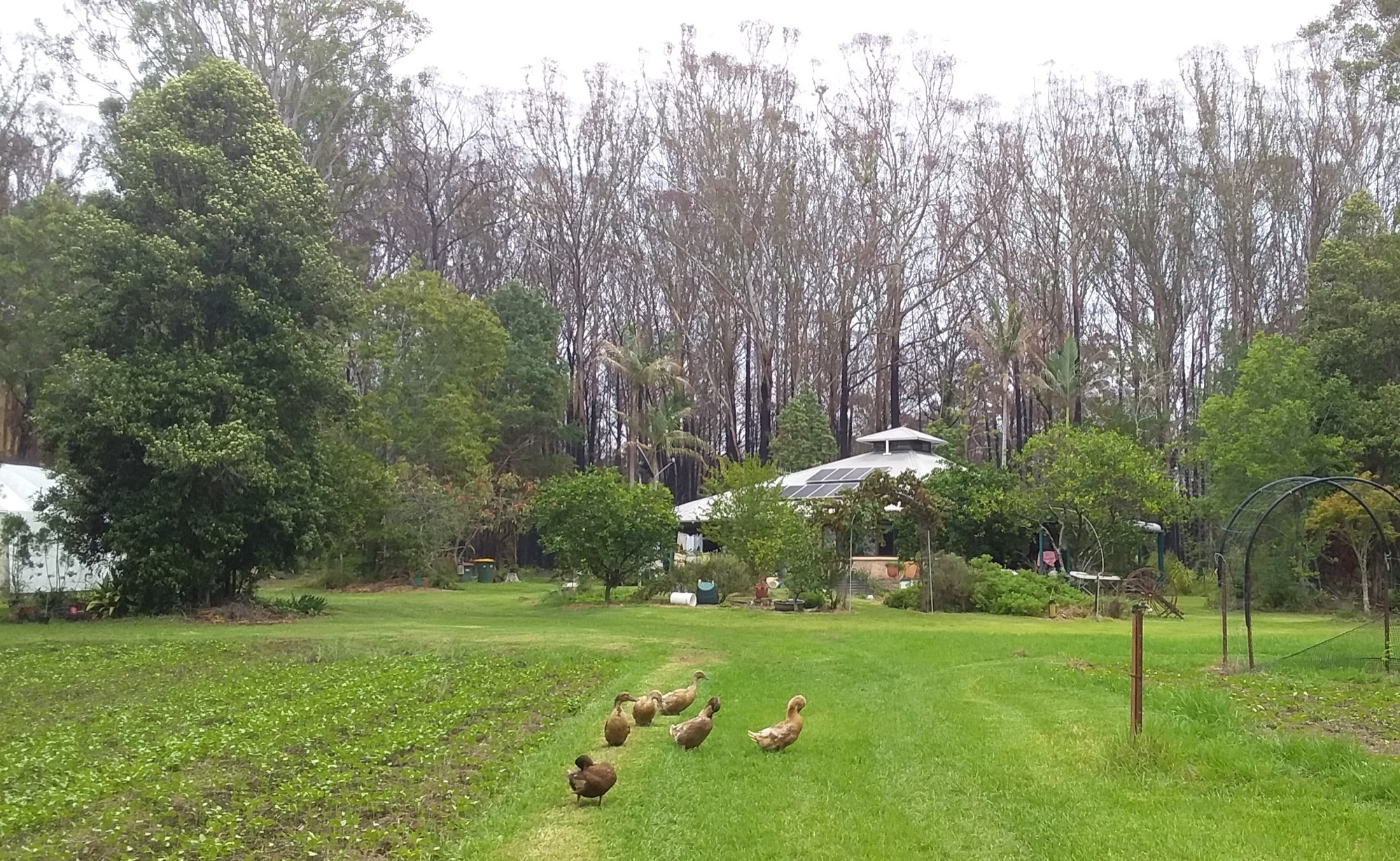
Asset protection zone around house and gardens, nearby bushland in the background
– Photo credit Daintry Gerrand
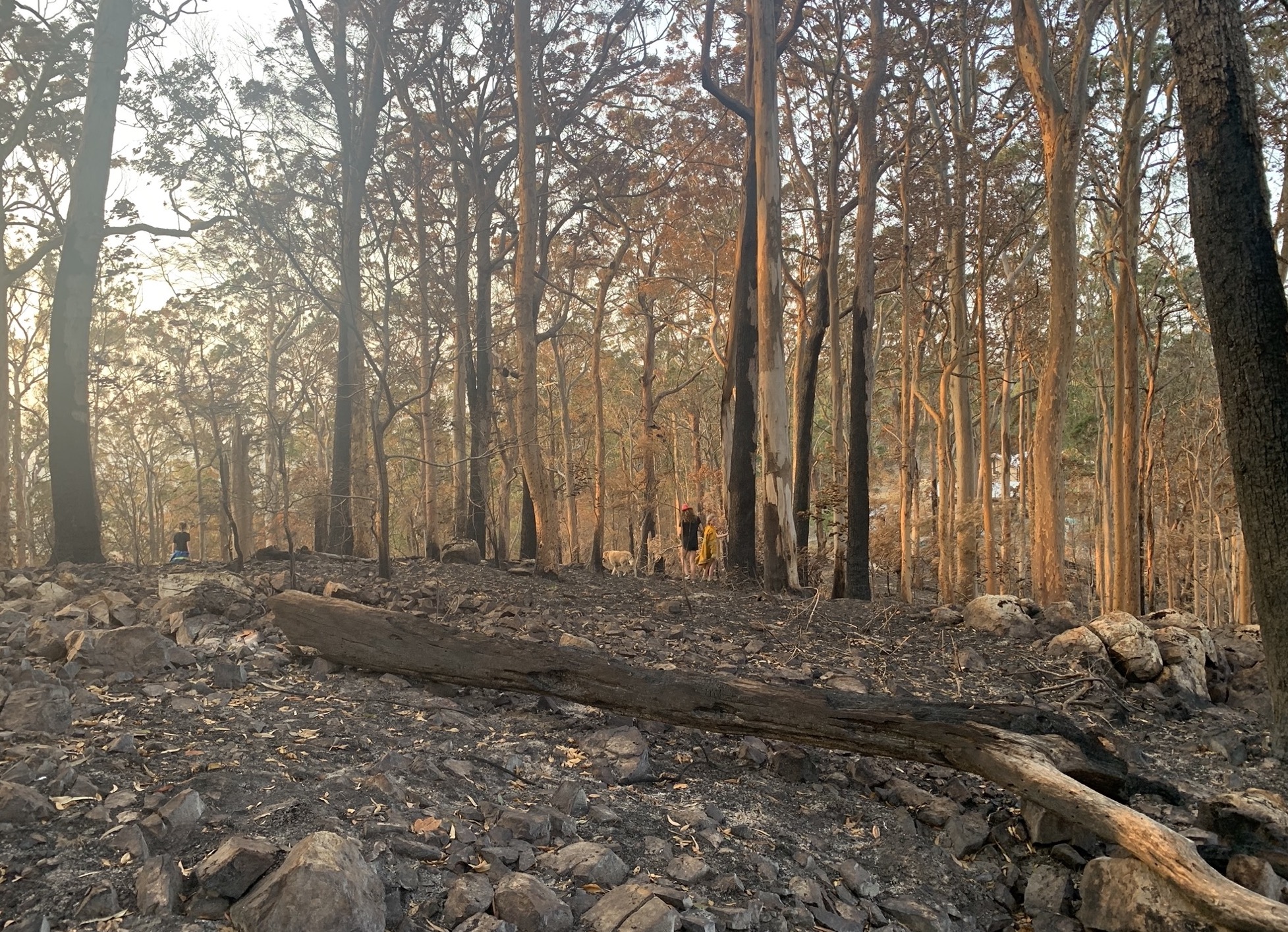
Areas extensively burnt can take time to recover after fire – Photo credit Isabelle Strachan

This is jointly funded project by the Australian and NSW Governments through Landcare New South Wales; the People Led Prevention Project. Although funding for this product has been provided by Landcare NSW and both the Australian and NSW Government, the materials contained herein do not necessarily represent the views of any Government.
Mid Coast 2 Tops Landcare Connection Pty Ltd accepts no liability or responsibility whatsoever for or in respect of any use of or reliance upon these modules and the supporting material by any third party. Information provided is not intended to be a substitute for site specific assessment or legal advice in relation to any matter.
